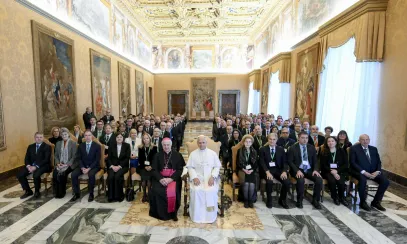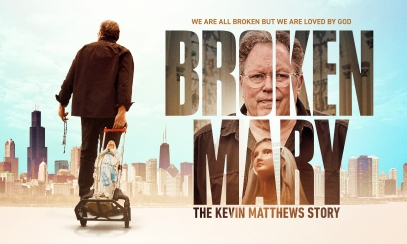
Advice For Avoiding The ‘Rotten Fruit’ Of Our Digital Age
The Eighth Commandment is taking a beating on the internet. So is the Fifth. Lying and defaming are no longer sins. They are clickbait.
The crisis of fake news and media manipulation is starting to get the attention of U.S. bishops.
Bishop Michael F. Burbidge of Arlington, Va., issued a pastoral letter titled “In Tongues All Can Hear: Communicating the Hope of Christ in Times of Trial.” Bishop Burbidge praised the benefits of the digital world but also warned that social media can be easily manipulated, calling attention to “fake alerts and false crises, provoking strong reactions before the truth or falsehood of an assertion can be established.”
Now Archbishop Allen H. Vigneron of Detroit, vice president of the U.S. Conference of Catholic Bishops, has gone a step further. In his new pastoral letter titled “The Beauty of Truth: A Pastoral Note on Communicating Truth and Love in the Digital Age,” the archbishop declared that “words matter” because the consequences of those words matter.
Calling “the uncivil nature of our civil discourse” a “rotten fruit” of “ill-used words,” he warned of a “a world awash in deceptions of all kinds.”
“There are innumerable media outlets, including many claiming to be Catholic, that threaten to steer us away from Christ and his church if we accept their messages indiscriminately,” he wrote.
Indeed, particularly when it comes to news, the changing landscape of Catholic communications is leading some Catholics to turn to untrustworthy news outlets filled with allegations and distortions that leave them angry, confused and distrustful.
The shrinking number of diocesan newspapers and news sites is creating a vacuum for the ideologically unscrupulous.
Archbishop Vigneron suggested five warning signs to be alert for when engaging social media, news outlets, blogs or discussion groups.
WARNING: “Any proposition out of harmony with the teachings of Christ and his church.”
Archbishop Vigneron advised consulting the Catechism of the Catholic Church when presented with questionable teachings. I would add seeking the counsel of a trusted pastor or religious educator as well.
WARNING: “Unsubstantiated claims or allegations.”
Talk is cheap, particularly in the anonymity of social media. “We have seen allegations of all kinds, even extremely grave accusations, leveled against people without the benefit of supporting evidence,” the archbishop said.
These charges are meant to attract eyeballs to a site or demonize an opponent. The same holds true for news stories even on Catholic sites: Are there named sources, and are these sources credible?
WARNING: “The manipulation of facts to deceive or harm.”
Sometimes even facts can be turned into lies by how they are presented or manipulated. The archbishop warned particularly of video presentations using music and images to “steer the emotional response of viewers” and narratives that allege conspiracies or corruption.
Such media often pose as documentaries, pulling the viewer along to conclusions that are neither true nor Christian.
WARNING: “Ad hominem attacks.”
Catholics can engage in spirited debate, but such debate should never include “gratuitous personal attacks,” Archbishop Vigneron wrote. “Charity must always animate our public communication.” I might add that this also holds true as well for those who email or write letters to bishops or pastors.
WARNING: “The spirit of division.”
Which brings us to the bottom line: “God’s Holy Spirit unites. Satan divides,” the archbishop concluded. “Zeal for a good cause neither requires nor excuses purposefully sowing seeds of division, especially division within” the Church.
Perhaps we need an Eleventh Commandment: Thou shalt not ignore these warning signs.
Erlandson, director and editor-in-chief of Catholic News Service, can be reached at gerlandson@catholicnews.com.



